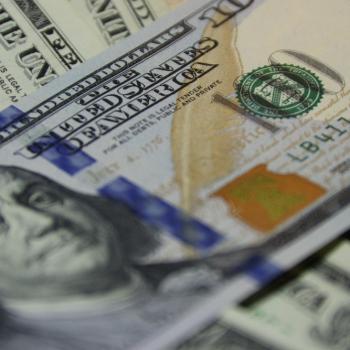If you’d like an easy way to keep your hard-earned money out of probate, payable-on-death (P.O.D.) bank accounts are the way to go. With this account, all you need to do is properly notify your bank of whom you want to inherit your money.
How it Works
As long as you’re alive, the person you named as beneficiary has no rights to the money in your P.O.D. account. You’re free to spend the money, name a different beneficiary, or even close the account.
Some banks and credit unions offer P.O.D. accounts for free. Here are three that have online accounts:
Adding a P.O.D. Designation to a Joint Account
P.O.D. accounts can be helpful for couples who have a joint account. Most joint accounts already come with a “right of survivorship,” which means that when one co-owner dies, the other automatically becomes the sole owner.
If you add a P.O.D. designation to this account, it only takes effect when the second owner dies. At that time, the beneficiary you named will receive the money in the account.
Adding a P.O.D. beneficiary to a joint account is also helpful in the unfortunate event that both owners die at the same time.
For instance, let’s say Dale and Jane have a joint savings account. They name their daughter, Leslie, as the P.O.D. beneficiary. If both Dale and Jane are killed in a car accident, Leslie would be able to inherit the money in the account without probate.
Naming Children as Beneficiaries
It’s okay to name a minor – a child under 18 years of age – as a P.O.D. payee. But if the account is worth more than a few thousand dollars, consider what could happen if that beneficiary were still a child at your death. In this case, you may want to have an adult manage the money for the child.
You can choose an adult now, and give that person authority to manage the money – without court supervision – in case the child is under 18 at your death. A common choice is one of the child’s parents.
In most states, the easiest way to do this is to name an adult to serve as custodian of the money. Custodians are authorized under the Uniform Transfers to Minors Act (UTMA), which has been adopted by all states except South Carolina and Vermont.
All you need to do is name the custodian as the P.O.D. payee of the account, and make it clear that the custodian is to act on the child’s behalf. That way, the custodian has the responsibility to manage and use the money for the benefit of the child.
Then, when the child reaches adulthood, the custodian gives what’s left to the beneficiary. Most states set 21 as the age when the custodianship ends.
Multiple Beneficiaries
Sometimes you may want to name more than one person to inherit the money in your bank account – for instance, your three children. That’s no problem. Just name all the beneficiaries on the bank’s form. Each will inherit an equal share of the money, unless you specify otherwise.
A P.O.D. account isn’t perfect though. It’s important to know that you can’t name an alternate payee – someone who’ll inherit your money if your first beneficiary doesn’t outlive you. If you’d like to name alternate beneficiaries for your bank accounts, you’ll want to create a revocable living trust.
Again, if you list three payees on a bank’s form, they won’t consider your list to be ranked in order of preference.
Rather, all beneficiaries will share the money in the account. If one beneficiary were to die before you, all the money will go to the surviving beneficiaries. So if you leave an account to your three children, and one of them dies before you, the other two will inherit the funds. If this isn’t what you want, you can name new P.O.D. payees after a beneficiary dies.
Claiming the Money
After your death, all a P.O.D. beneficiary needs to do to claim the money is show the bank a certified copy of the death certificate and proof of his or her identity. If the account was a joint account, the bank just needs the death certificates of all original owners.
Do you have a P.O.D. Account? Do you think it’s a good idea to have one?











